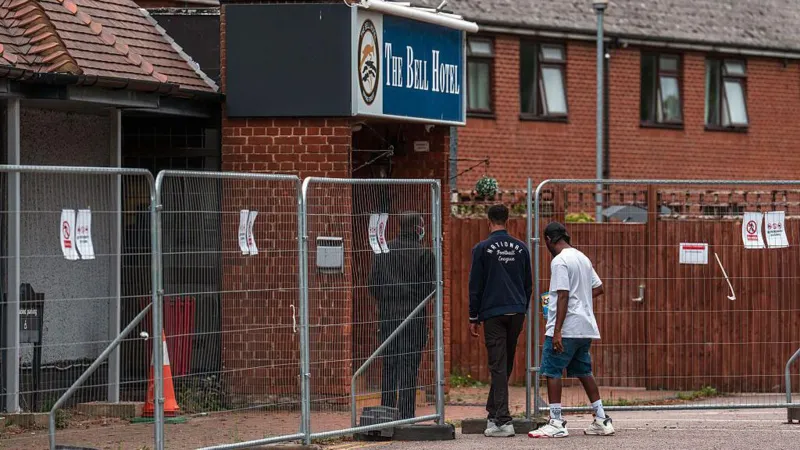The Home Office has confirmed that it has recovered £74 million in what it calls excess profits from companies that provide accommodation for asylum seekers in hotels. The move came after the Labour government carried out a review of the contracts shortly after coming into power. Officials say the repayment is part of a wider effort to reduce the high cost of temporary migrant accommodation.
Shabana Mahmood, the current Home Secretary, said that the overall cost of using hotels for asylum seekers has already fallen by around £700 million since the General Election. She explained that the government found that some contracts were not offering good value for money and that the companies involved agreed to return part of their profits under contract terms.
The announcement has been welcomed by senior Conservative politicians, but many say it is only a small step. Dame Karen Bradley, chair of the Home Affairs Select Committee, described the repayment as positive but stressed that much more money has been spent over several years. She said that the government now needs to show how it plans to move away from hotel accommodation entirely and create a more stable and affordable system.
Conservative Shadow Home Secretary Chris Philp also said the savings are small compared to the size of the issue. He pointed out that the Home Office is spending about £5.7 million every day on hotel accommodation for asylum seekers. He argued that the current situation is still unsustainable and claimed that the number of people in hotels has increased compared to the period before the election.
The companies that manage asylum accommodation include Serco, Clearsprings, and Mears Group, which hold long-term contracts to provide housing for asylum seekers in different parts of the UK. The original contracts, signed in 2019, were expected to cost around £4.5 billion, but estimates now suggest the total may rise above £15 billion due to increased demand and longer stays.
Hotels used to house asylum seekers are much more expensive than standard housing. It costs almost £145 per person per night in a hotel, compared to around £23 in dispersal accommodation such as flats, shared houses, or hostels. Because of this difference, the government has been pushing local councils to provide more community-based housing, but many councils have said they do not have enough available properties.
More than 90% of councils across the UK are expected to house asylum seekers by the end of the year. The Home Office still needs accommodation for over 66,000 asylum seekers, while current housing plans cover only about 46,000 places. This leaves a shortage of nearly 20,000 spaces, forcing the government to consider using unused military bases and abandoned buildings to reduce hotel use.
Despite the challenges, Shabana Mahmood says the government remains committed to closing all asylum hotels before the end of the current parliamentary term. She said that the goal is to create a fair, cost-effective, and long-term accommodation system that reduces pressure on taxpayers and local communities while still protecting vulnerable people seeking safety.

